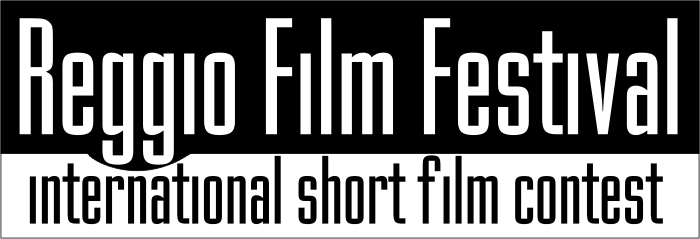Giuria Internazionale – IDENTITY
composed of Vladan Radovic, Francesco Costabile and Valeria Perdonò
First Prize
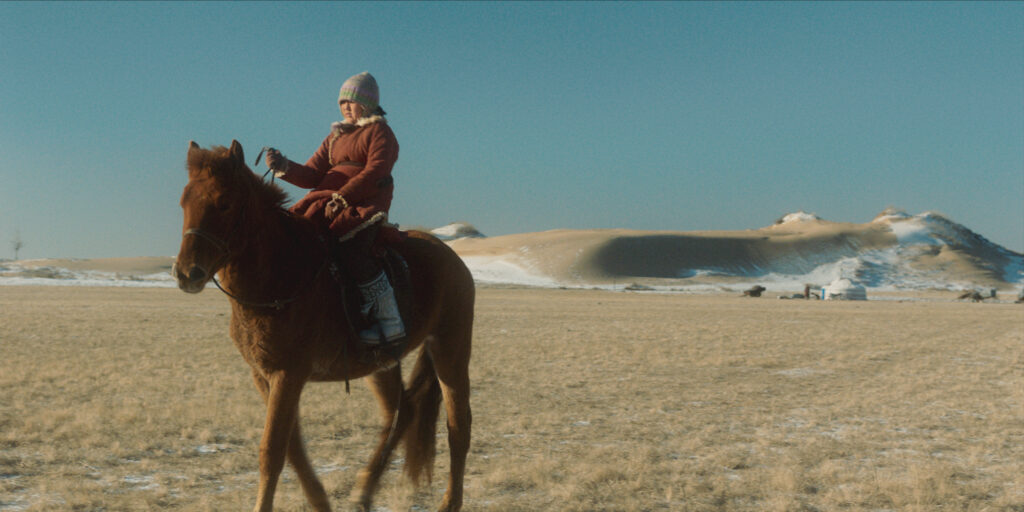
Heading South by Yuan Yuan (China, USA)
Splendid insight into a distant world. Intense storytelling, dramatic but also delicate in describing two irreconcilable realities (the rural and the urban) and both demanding.
Extraordinary performance by the protagonist who tells us through her silences, how children are often victims of others’ choices and their feelings are not understood by the adult world
mention to

Warsha by Dania Bdeir (Lebanon, France)
For its ability to express the emptiness, the suspension, the sense of vertigo of those who live their daily lives far from beauty and the desire to express themselves. Thanks to a refined work on sound and language, thanks to a rhythm of continuous suspense, Warsha surprises and overturns both stylistic and thematic expectations.
A hymn to freedom, to breaking stereotypes, to the multiple identities that society often forces us to hide or adapt to certain gender canons.
AUDIENCE AWARD
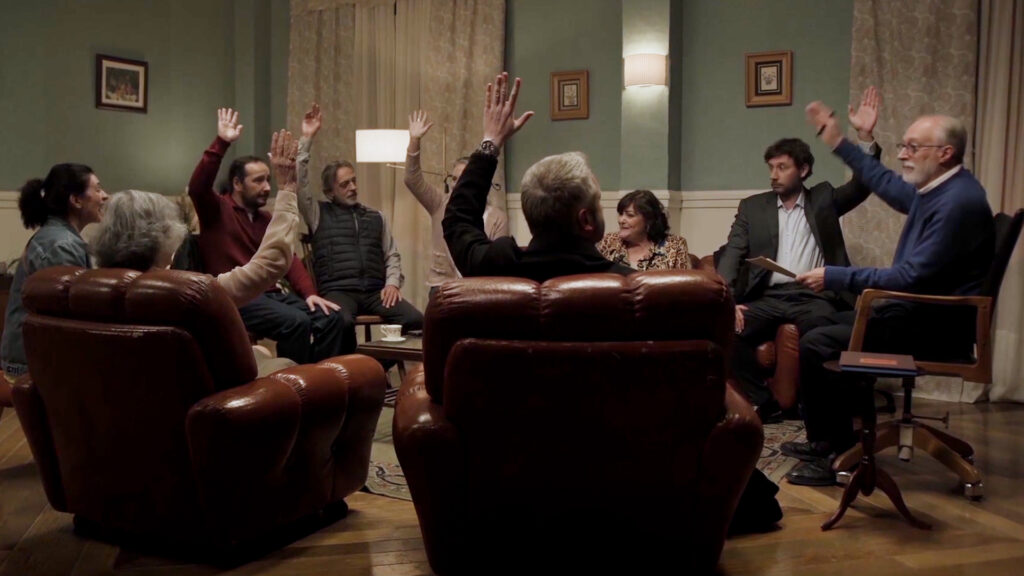
Votamos by Santiago Requejo (Spain)
SNCCI AWARD – Open Category

Votamos by Santiago Requejo (Spain)
The prize for the best short film at the Reggio Film Festival 2022, awarded by the SNCCI jury of the Emilia-Romagna and Marche group, composed by Paola Olivieri, Gianluca Stanzani and Marco Zambelli, in the “Open Category” section, is given to “Votamos” by Spanish director Santiago Requejo. The meeting of a small condominium is an opportunity to bring out the petty hypocrisies of today’s society, where goodness perhaps prevails in opinions, while in real life prejudices and selfishness impose themselves. Filmed in a single, skilful, engaging sequence shot, enhanced by the refined images over which the credits roll, supported by an excellent company of actors, the work invites us, with emotion and participation, to question ourselves on the complexity of stigma.
mention to
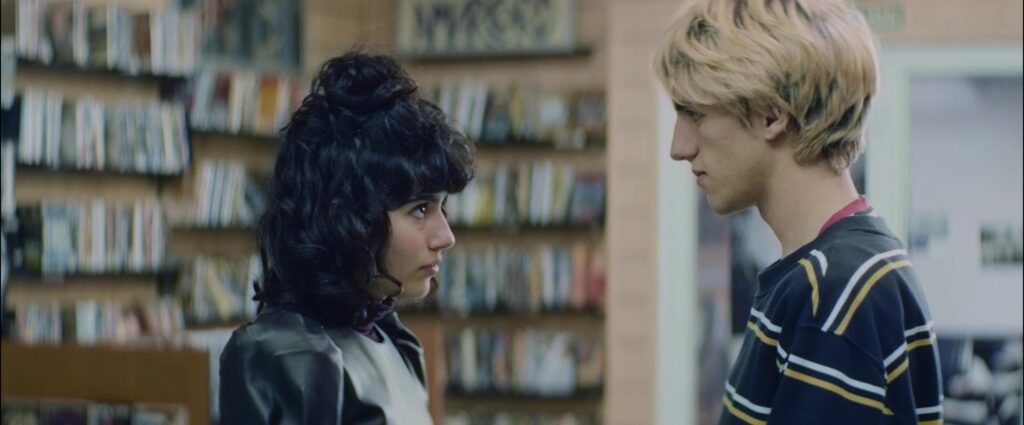
Ficciones by Teo Planell Martine, Alejandra Kikidis Román (Spain)
Special mention of the jury to “Ficciones” by Spaniards Teo Planell Martine and Alejandra Kikidis Román, who also star in their work. The short film plunges the spectator into an imaginary land in which, amid astonishment, surprise and loneliness, a brief amorous enchantment breaks out to open up the indispensable world of illusions. To dream and to dream only! This seems to be the only antidote to the emptiness of existence for our protagonists, miraculously saved by the magic of cinema that overturns and illuminates their present.
FEDIC AWARD
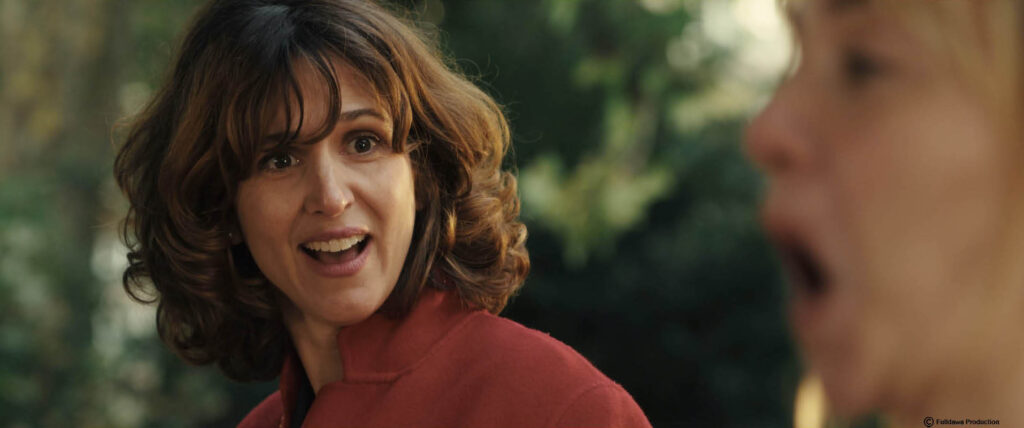
Le Pompon di David Hourrègue (France)
The FEDIC Prize goes to David Hourrègue’s Le Pompon for having succeeded, with irony and comedy, in highlighting the use of children as our projection. Of ourselves but above all of what we would like to be.
Special Mention to
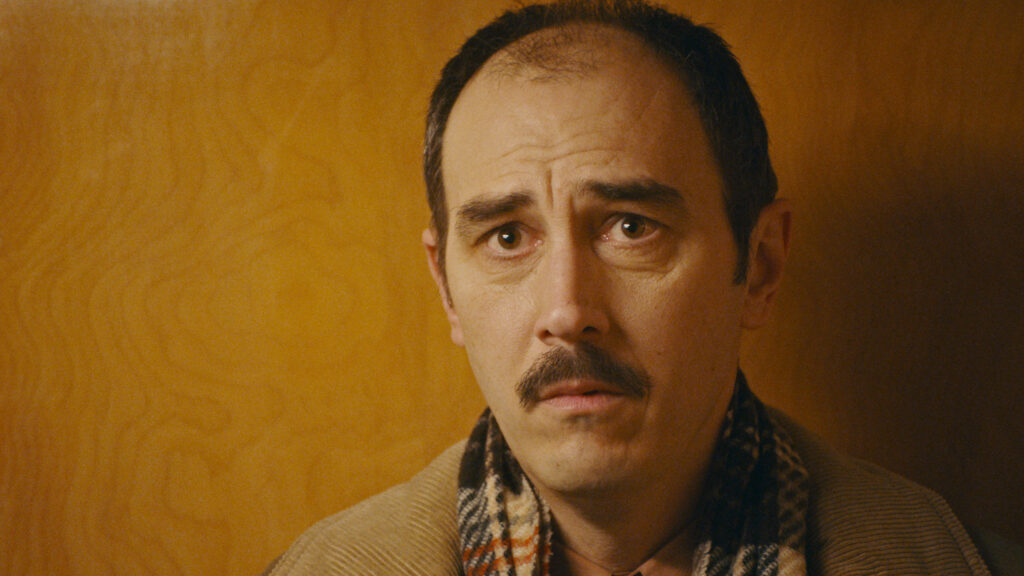
Les Grandes Claques by Annie St-Pierre
Premio Sound
Assigned to the short film that makes the most original and expressive use of sound, be it music, speech or noise. In collaboration with RCF.
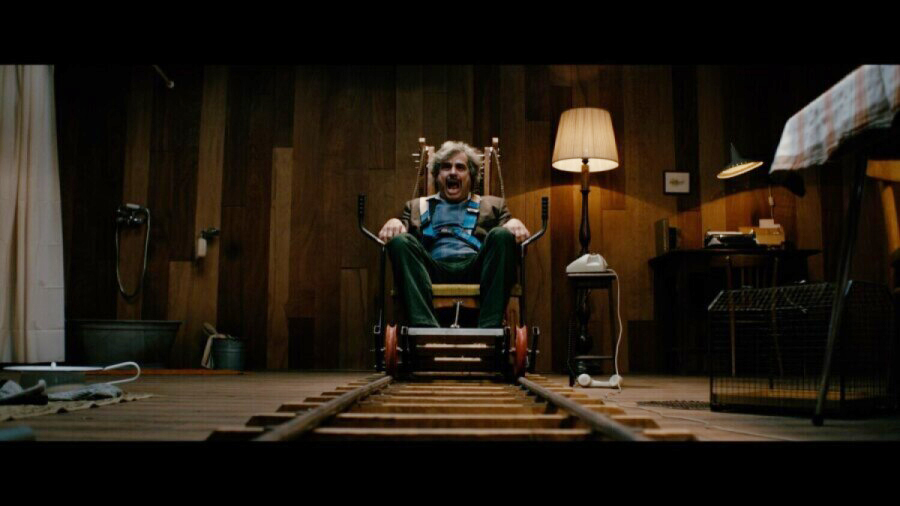
Cuckoo by Jörgen Scholtens (The Netherlands)
Laity Award
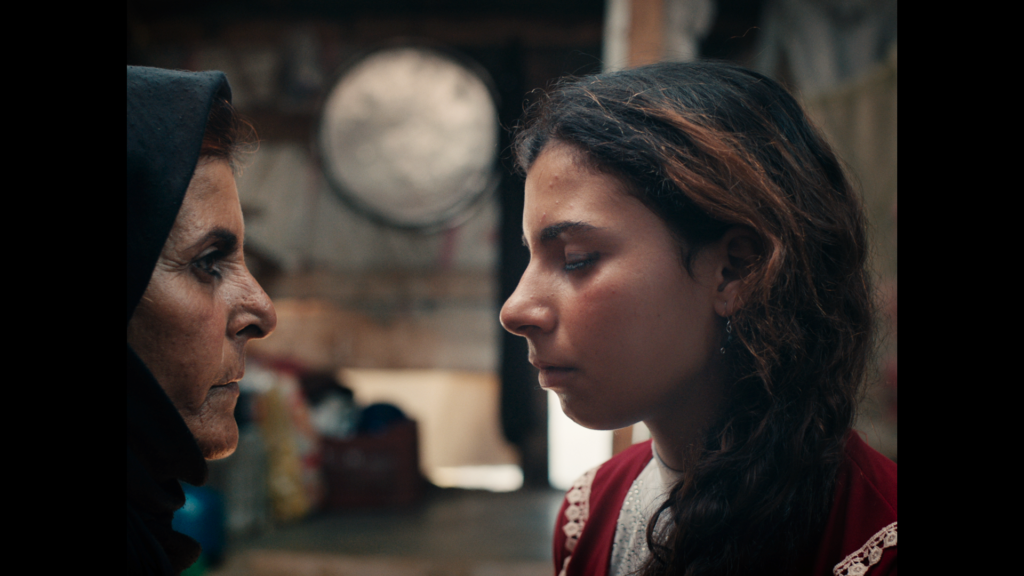
Trumpets in the Sky by Rakan Mayasi (Palestine, Lebanon, France, Belgium)
From the shouts of games to the screams of coercion and the silence of forced marriage: money and the laws of fierce patriarchy decide on women’s bodies. Without the need for words, in just a few minutes Rakan Mayasi manages to portray the feelings of fear and isolation of the young Boushra, towards which the viewer cannot help but feel empathy, contrasting them with the joy – all male – of the community for the wedding celebration, in a cheerfulness that is at times all too annoying in the eyes of those who watch and know the girl’s discomfort.
A short film that leaves its mark and, above all, does not leave one indifferent.
Mention to
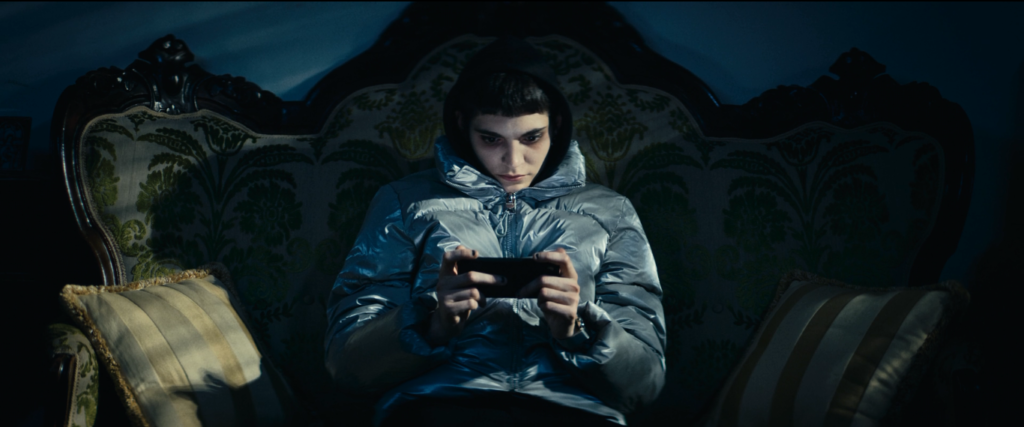
Figlie delle Stelle by Edoardo Smerilli (Italy)
UNIMORE AWARD

Dans La Nature by Marcel Barelli (Switzerland)
The UNIMORE student jury, composed of male and female students of the three-year degree in Communication Sciences of the Department of Communication and Economics (Prof. Dusi’s Film and Media Semiotics course), awarded the FIRST PRIZE to DANS LA NATURE by Marcel Barelli (2021, Switzerland).
“Dans la nature” is a short film that, with its simplicity, precision and cheerfulness, is able to address one of the most discussed topics in all societies today, homosexuality in nature.
In fact, it shows in a completely effective and persuasive manner, thanks to lively animations, how there is no predefined, precise and equal identity for everyone, but, on the contrary, in nature we can deal with a vast quantity of animal species that mate in a completely original and particular way.
The fact that the narrator’s voice is that of a child, who understands and approves of this diversity, and that the short film is in the form of a cartoon, enhances the simplicity and communicative scope, for young and old alike. The message is clear: the beauty of diversity in nature and the knowledge that each living being is different from the others, endowed with its own uniqueness and specificity, with the right to manifest its identity and personal freedom without having to worry about being marginalised or discriminated against.
For love is never an expression of violence, but a form of peace (with oneself and with others).
Second place:

Warsha by Dania Bdeir (2022, Lebanon-France)
Warsha shows oppression and freedom of LGBT individuality in the Middle East.
It is indeed an original tale to talk about identity, to understand perceiving oneself as different and how dangerous, yet rewarding, it is to be true to oneself.
Relevant to the theme of the current edition of the Festival, the short film effectively exposes a cross-section of the everyday life of a queer person, dropped into a social context that is evidently antithetical and oppressive towards free self-determination.
But the short film conveys that we are also the creators of our own reality. Warsha’s identity can be made explicit in a dreamlike musical, constructed from the sublimation of her own fantasy.
Only in this way, far from discrimination, can the protagonist find his own freedom.
USAC Prize
Awarded by a jury composed of American students following the USAC (University Studies Abroad Consortium) course in Reggio Emilia.
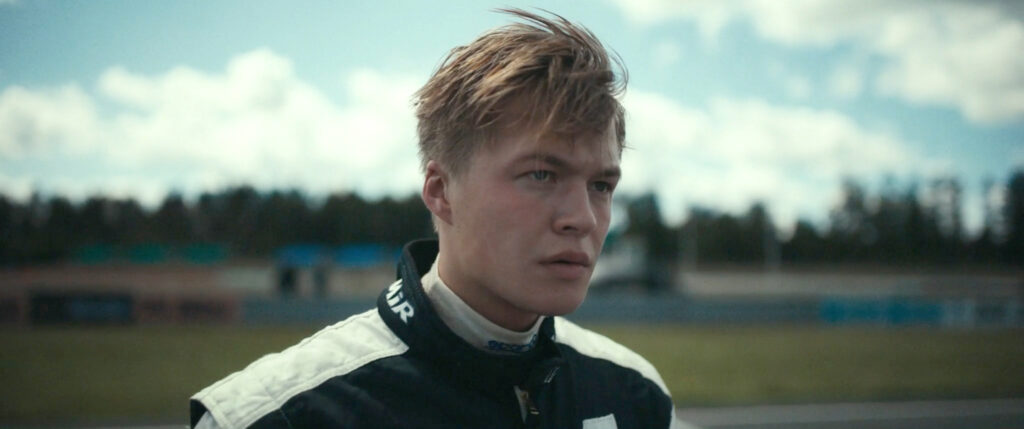
Natsvaermer by Anders Walter (Denmark)
The universal theme of expectations, misaligned with the protagonist’s desires, made for a relatable story. The depiction of abuse was revealed with delicacy and hinted at the complex relationship between the abused and abuser such a situation creates.
The character development was thoughtful and took into account all the characters instead of just the protagonist. Their motivations and traumas all went through a swift pace that kept the action of the story engaging. Throughout the film was the theme of the moth, symbolizing burning by chasing the light and safety by changing paths. It ended in a satisfactory manner, leading to the protagonist turning away from the path of a race-car driver and, more importantly, turning away from his father.
CHIERICI Prize
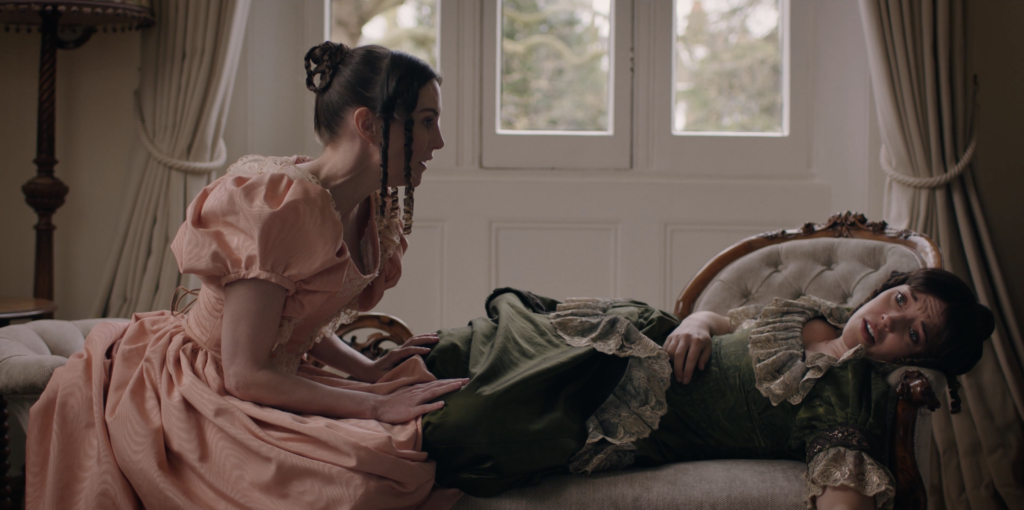
Lady Brently’s End by Sam Baron (Great Britain)
for having dealt with current themes by skilfully using the artifice of a setting from the past.
Leonardo Prize
Awarded by a jury composed of students from the “Leonardo Da Vinci” Secondary School
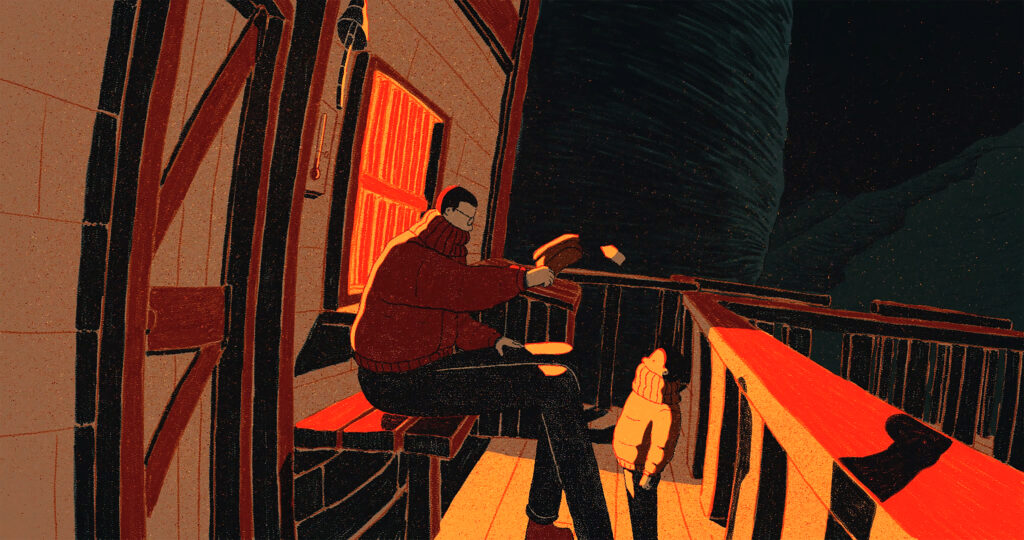
Ice Merchants by João Gonzalez (Portugal)
Classes 3D, 3C and 3E voted “Ice Merchants” as the best short film, for several reasons: the distinctiveness of the animation; the fact that it reflects reality and we see ourselves in the video; and because there is no dialogue between the characters, it is easy to understand, intuitive and within everyone’s reach. In second and third place we ranked “Le PonPon” and “Le Grandes Claques”. “Le PonPon” while having a comical meaning succeeds in showing social differences and the complicated life of some single-parent families. In contrast, “Le Grandes Claques” is a more dramatic narrative that brings into play the daughter’s deep empathy for her father. All three films describe a family difficulty that falls on the children, and therefore on us.
Estasia Award
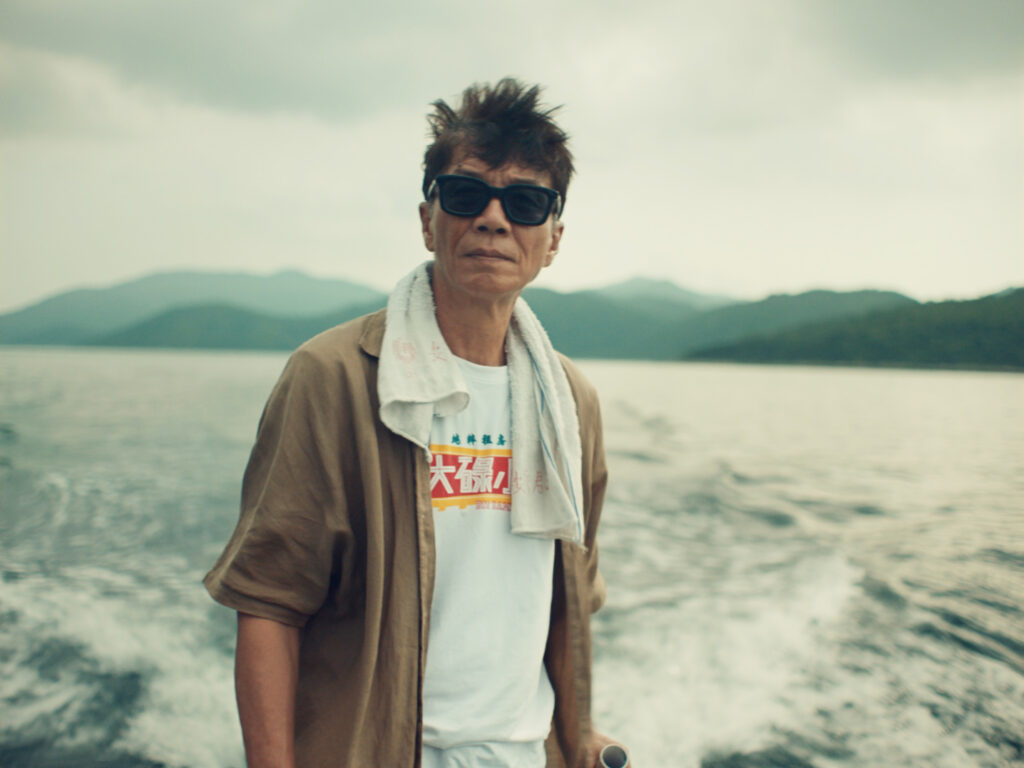
The Last Ferry from Grass Island by Linhan Zhang (Hong Kong, USA)
As always happens in our film club, the judgments were split. The winner was not the most polarising film, but rather the one that, despite the essentiality of its plot, was able to collect and best interpret a series of tropes dear to oriental noir. An operation of which it appears to be aware, due to its even explicit references to the film production of other countries in the Asian area, to which it appears to be strongly indebted, and whose cryptic ending, in some ways definitive and in others completely open, successfully succeeds in painting a mysterious and fascinating narrative universe in the spectator’s mind, managing to make the most of the limitations of the short film medium.
In short: the staff of EstAsia and Cineclub Peyote award the special mention for best Asian short film to The Last Ferry From Grass Island, by Linhan Zhang.
Alessandra Mizzi Award
awarded by AIMA, Italian Association of Alzheimer’s Disease Reggio Emilia
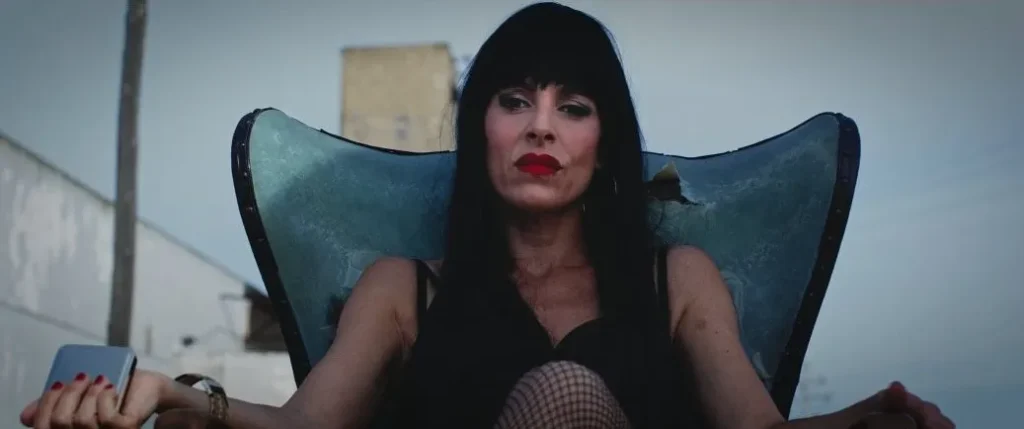
La Butaca de la Puta by Mar Navarro (Spain)
As jurors, it was not easy to choose the winning short film; they all highlighted aspects of the disease, the person with dementia and carers, treated with truthfulness and sensitivity.
We chose the one that we believe most reflects Sandra’s commitment and the underlying message of her work of almost 25 years, the one we believe she would have chosen.
The winner of the Alessandra Mizzi award is the Spanish ‘La butaca de la puta’ by Mar Navarro
for its ability to highlight the problems of the family context that the disease can exacerbate, but in which care and love for the mother, the need and willingness to extend a hand, to understand, to welcome prevail, bringing the family closer together and opening the way to new hope;
Mutual help and unity, listening and understanding, being in relationship, as essential elements in coping with illness were the pillars of Sandra’s message, who always firmly believed in the need not to face alone the trials to which we are called by illness.
The short film that won the award makes a choice in the vast world that makes up the context of illness, of dementia, and analyses that aspect in an honest and touching way, and this recalls what Sandra and Aima have been tenaciously affirming since 1997 in Reggio Emilia: the help and the union that the short film talks about is not and must not be the exclusive prerogative of the family; there is a much wider context, of which Aima is part together with the Services, that can give that support necessary to be able to face and live the challenges that the illness poses to people with dementia and to caregivers.
Poliedrica Prize
First Prize
Un Primo by Raffaele Zanuttini
For the essential effectiveness with which he developed the concept, highlighting the complexity and contradictions of the concept of identity
Second Prize:
Innatus by Vanessa Zecchi and Richard Moyse
For the ability to use the language of the documentary in an unusual time, capturing the authenticity of the protagonist
Third Prize Winner:
Reflections of a Chameleon by Mirko Bonezzi
For the quality of the text and interpretation.
Mention to:
Marianax by Nicole Ferriari for the irony with which she manages to deal with such a central theme that must constantly remain at the centre of everyone’s attention;
Io sono Giulio by Alex Cattabriga for having tackled the issue of gender affirmation in a delicate, complete and essential way.
Unimore-Polyhedral Prize:
Marianax by Nicole Ferriari
Mention:
Io sono Giulio by Alex Cattabriga
Un Primo by Raffaele Zanuttini
Family Award – International Jury
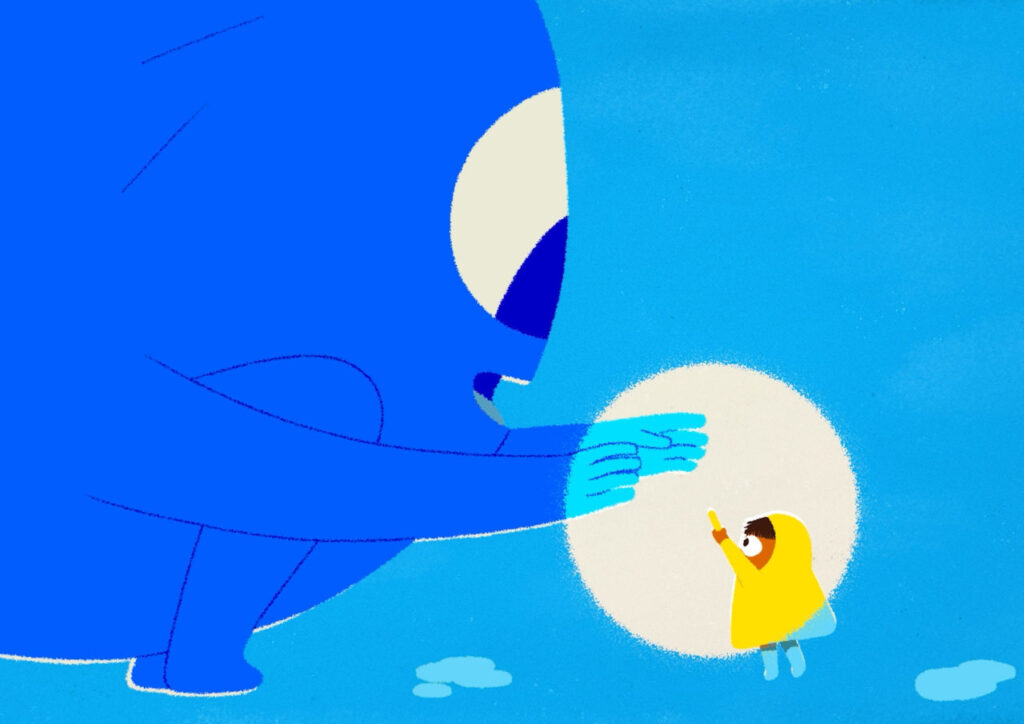
ex-aequo
Luce et the rocher by Raf Schoenmaekers (Belgium, France, The Netherlands)
In Luce and the rock an increasingly pressing choir of female voices and the rituality of small gestures that keep repeating or vary unexpectedly lead us in a kind and ironic way into a hypnotic story, whose closing image represents a moment of pure poetry. A work on the gaze of childhood, that still free from adult prejudices can get to see the light inside otherness.
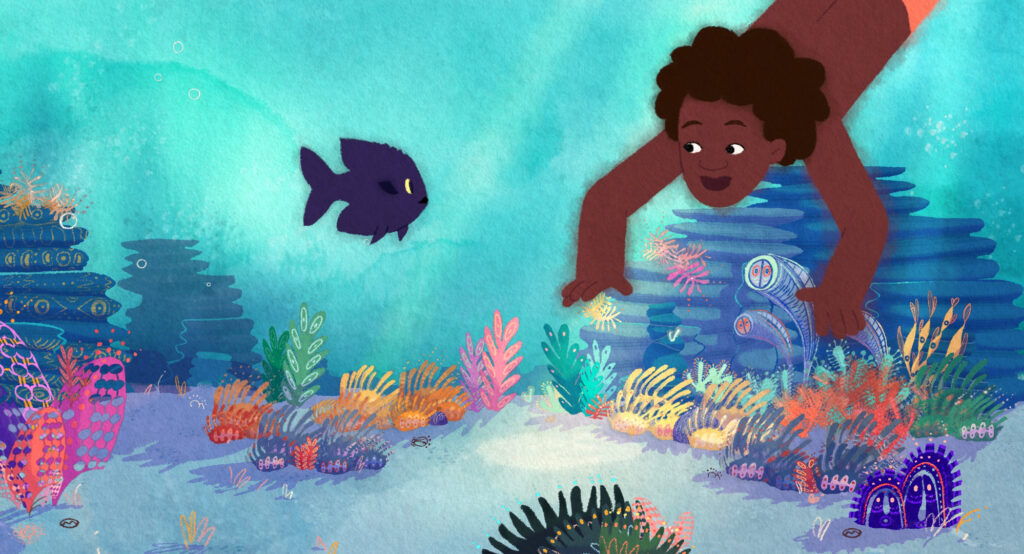
ex-aequo
Idodo by Ursula Ulmi (Switzerland, Papua New Guinea, USA)
Idodo, a legend with an exotic flavor that portraits a image of the world and its living creatures as a great ecological mind in which we are all connected to each other. An extremely suggestive style, causing a continuous wonder, tells us about the pleasure of transformation and the deep bond with the stories from the past.
Family Award – Special Mention
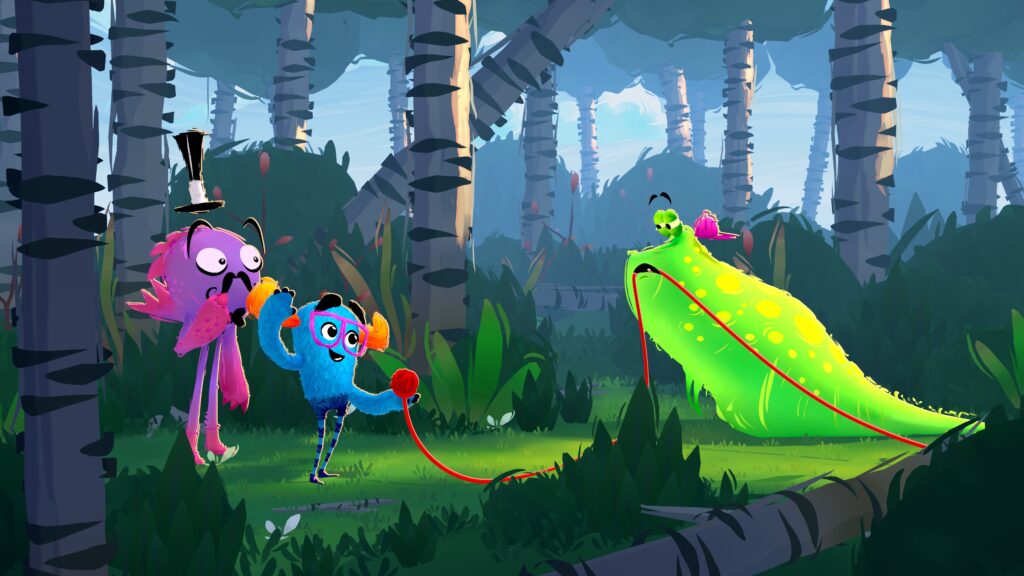
Fussel by Alex Berweck (Germany)
The jury has also decided to give a Special Mention to Fussel by Alex Berweck
because its shortness and simple storytelling achieve a precise goal and perfect rhythm on the narrative level. A micro-adventure where the diversity/uniqueness of the characters coexist and enhance each other. Ironic, original, imaginative.
Family Audience Award
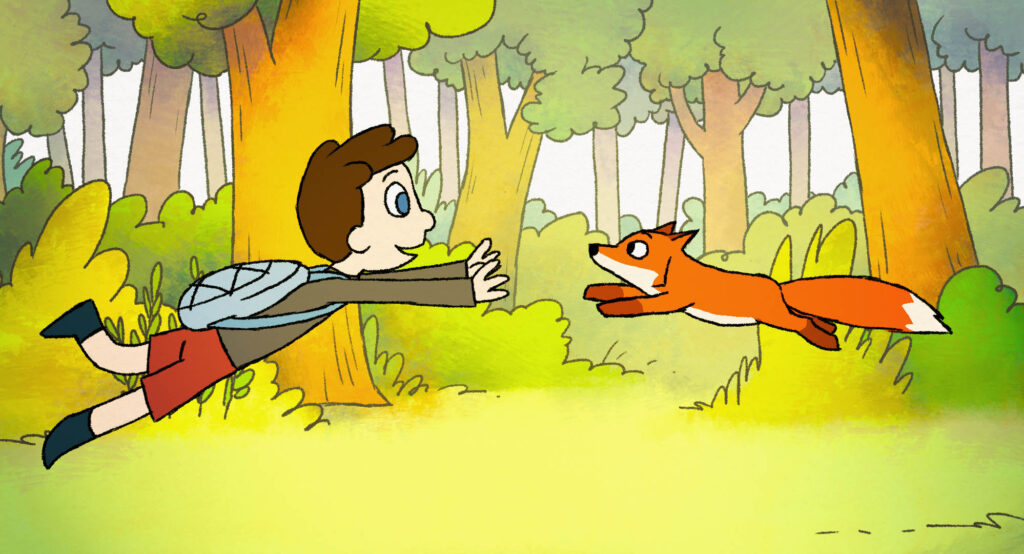
Fuchs für Edgar by Pauline Kortmann (Germany)
